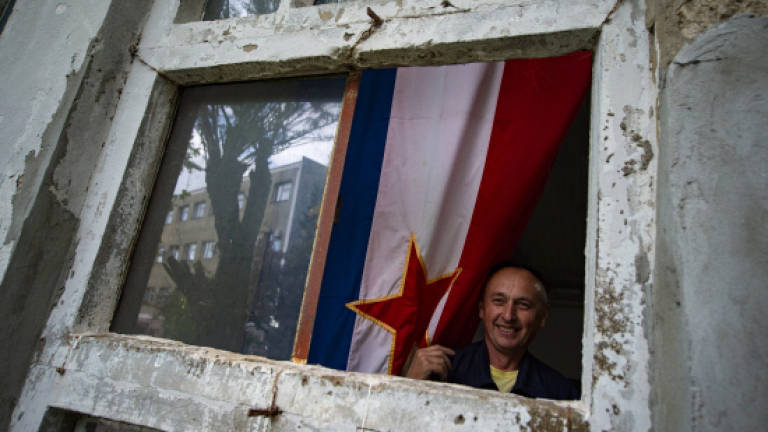Serbia struggles to sell off communist-era companies

DEEP in a western Serbian valley, the town of Priboj despairs at the decline of a truck factory that was once its lifeblood – and is now symbolic of the country's failing state-owned companies.
A thriving manufacturer employing thousands under communist Yugoslavia, Fabrika automobila Priboj (FAP) is today one of Serbia's loss-making enterprises whose future hangs in the balance as the Balkan nation holds parliamentary elections Sunday.
"For us, FAP is everything," said Njegos Kokovic, 61, the director of a barely operating production line in Priboj, where even the town square and the football team are named after his employer.
As part of a loan agreement with the International Monetary Fund, and to keep Serbia on the path towards European Union membership, Prime Minister Aleksandar Vucic has pledged to sell off or close hundreds of inefficient state-run companies.
FAP is among 17 "strategic" yet hard-to-sell enterprises, between them employing more than 20,000 people, that were temporarily ring-fenced for protection as the government bought more time to find solutions other than bankruptcy.
That costly protection is due to be lifted at the end of May, intensifying fears among the companies' employees in a country where unemployment is already at around 20%.
After four unsuccessful approaches from potential buyers, including Finland's Sisu Auto, a happy outcome seems elusive for FAP, which once employed 7,000 local people.
Facing fierce competition from foreign manufacturers, Priboj's production of trucks, buses and military vehicles has dropped off dramatically since the former Yugoslavia began to fall apart in the early 1990s.
Staff numbers are now down to just 650, and FAP suffers from "a lack of modern technical solutions", said Milorad Dragas, a FAP employee and local trade union representative.
'Little too late'
A worried group of the remaining workers are standing in local elections, also being held on Sunday, hoping to boost FAP's chances of survival with a plan to revive the plant – but without the €25 million (RM109.5 million) required to do so.
Fewer than one hundred people attended a recent rally they held on the square in Priboj.
"We might have reacted a little too late," said Miroslav Mrsevic, 54, leading their campaign.
Vucic, who is widely expected to strengthen his power in the national polls, promised late last year to help the dying truck maker, insisting: "We will not leave Priboj without FAP and without jobs."
But he took a more defensive stance in an interview last week with NIN magazine, implying previous Serbian governments were to blame for FAP's troubles.
"Did they leave me a factory producing Porsches that is working like a Swiss watch? I still hope something is possible," he said, referring to possible interest from Czech or Russian buyers.
Other "strategic" companies at stake include a huge copper mine in Bor in eastern Serbia, drugmaker Galenika in Belgrade and a petrochemical complex in Pancevo, near the capital – all of which, based purely on profit, should have been closed a decade ago.
"Some towns depend entirely on these industries being maintained. But is it right to help a town at the expense of investments that benefit everyone?" said economic analyst Ana Trbovic.
Generating growth
While the job losses would be painful, the IMF and EU say the reform of state-owned companies and public sector staff cuts are crucial to long-term growth in Serbia.
The country's average monthly wage is around just €360, the economy has slipped in and out of recession in recent years, and many young Serbians seek work abroad.
"Your people are hungry!" shouted a man during a speech by Vucic at a recent rally.
Daniel Berg, director for the European Bank for Reconstruction and Development (EBRD) in Serbia, said the government "has taken some important steps to make state companies more effective".
He referred to the successful 46-million-euro sale this month of Serbian steel mill Zelezara Smederevo, one of the 17 strategic companies, to Chinese giant HBIS.
But, as shown by FAP, privatisation remains a tricky task for Serbia, faced with a difficult global economic climate, overpriced and unattractive assets and concerns about corruption.
Back at a workshop in Priboj, a handful of workers assembled 10 trucks recently ordered by the army while other parts of the complex lay in stony silence, their machines long switched off.
Within the crumbling walls and faded buildings of the town, youngsters expressed little interest in staying there to work, regardless of FAP's fate.
"Everyone flees Priboj," said Sofia Jakovljevic, 21, who is now studying in Belgrade. — AFP